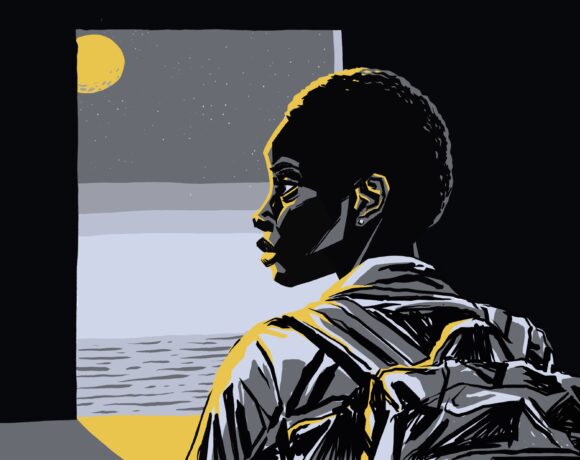‘How Tinubu will tackle terrorism, banditry, secessionists’
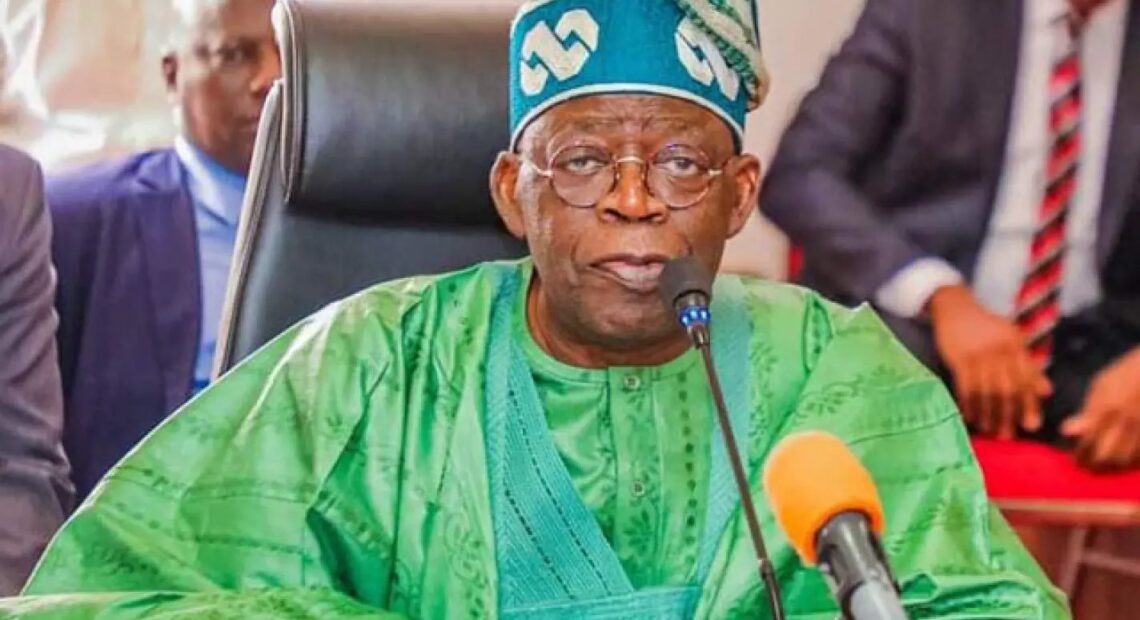
Key Points:
-
Insecurity will continue into the next administration; Tinubu must brace-up to tackle it
-
During his campaign, Tinubu was not emphatic on how he would deal with insecurity
-
Oodua Peoples Congress (OPC) thrived under Tinubu as governor of Lagos State
-
The president-elect will build on initiatives implemented in Borno State under Senator Kashim Shettima to deal with terrorists
-
‘Tinubu will form a team of security experts to fashion out a strategic approach to deal with insecurity.
By Theophilus Abbah, PhD
For president-elect Bola Ahmed Tinubu, these few days to inauguration as president overflows with anxiety, after he was declared winner of February 25, 2023 presidential election. The victory came amid adverse winds of cash crunch and opinion polls that put Labour Party’s candidate Peter Obi as favourite for next president. Other sober opinion polls see All Progressives Party (APC) candidate Asiwaju Bola Ahmed Tinubu as an iroko that cannot be pushed over. From the voting population figures and based on Nigeria’s rock-rooted ethnocentric and religious-centric voting culture, it was expected that Tinubu would garner block votes from the South-West, the majority Yoruba-speaking geopolitical zone, and massive votes from parts of North-West and part of North-East, where his damning choice of a Muslim Vice-Presidential candidate sat comfortably with the conservative Muslim voting population.
Tinubu has won the prize, but how would he take on the multiplicity and nagging problems that have held the country in the cage of confusion for over sixty years, marching around its potential but never entering the Promised Land? This special report is anchored on the old English proverb that a captain is always a captain; a whore is always a whore. A similar saying is found in the Bible, that the Ethiopian (black man) cannot change the colour of his skin. In like manner a preview of Tinubu’s likely steps and strategies in dealing with Nigeria’s besetting problems will be carried out by making recourse to how he dealt with similar issues in his previous world as governor and political leader in the South-West. Though the troubles Tinubu will carry on his chest as president are basket-full, five major ones will be examined in this analysis – insecurity, weak economy, corruption, religious conflict, and ethnic agitations.
I am extremely concerned about security
Barely two months after the Independent National Electoral Commission (INEC) declared Asiwaju Bola Tinubu as president-elect, bandits have resumed their streak of bloodbath in the North. They attacked communities in Southern Kaduna in the two weeks interval between the presidential election on February 25 and governorship election on March 18, 2023. In Oganenigu in Dekina Local Government Area of Kogi State, bandits destroyed houses, farms and farm produce, and killed many persons in the first week of April 2023. Also, the death toll from bandits’ wanton destruction of communities in Oturkpo Local Government Area of Benue State was put at about 134, by outgoing Governor Samuel Ortom. Also, bandits attacked Hausa communities in Sokoto State, abducting many. Unless security operatives take drastic steps to curb bandits, the trend will worsen before May 29, 2023 when Tinubu will be sworn-in as president.
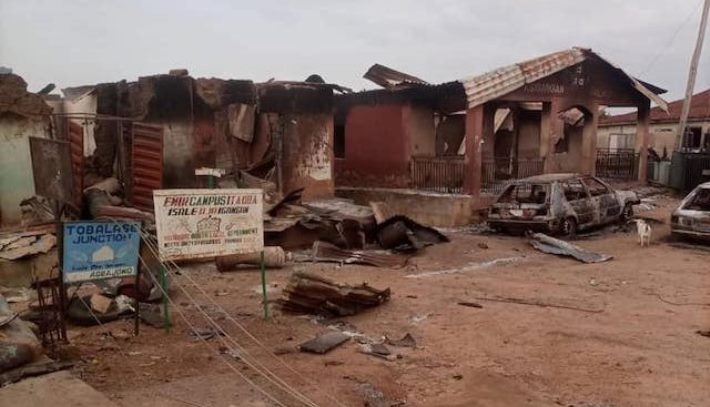
Igangan herdsmen attack in the Southwest
Photocredit: Businessday NG
Going down memory lane, it is not hidden that since 2011, insecurity has provided abundant raw materials for political rhetoric. In 2015, President Muhammadu Buhari rode to power on the crest of his promise to tackle Boko Haram insurgency. But eight years after, and in spite of his chest-beating claim to have decimated Boko Haram, he would bequeath his successor a worse form of insecurity, where territories are cleverly ceded to the Islamic States of West African Province (ISWAP) in the North-East, and huge swathes of land surrendered to rampaging bandits who kidnap for ransom and collect taxes from peasants in the North-West. When he takes over on May 29, Tinubu will be in self-delusion if he thinks his emergence would automatically bring about peace in the two highly volatile regions; bloodshed could erupt and spread volcanic lava all over again.
Unfortunately, Tinubu does not have the record of being adept in tackling insecurity. In his days as governor of Lagos State, the riotous, violent and blood-spilling Oodua Peoples Congress (OPC) had almost a free reign, targeting ‘strangers’, fighting on the streets of South-West States, giving security agencies so much trouble, but also operating with the air of being untouchable on account of the assumption that Governor Tinubu had a room in his heart for miscreants.
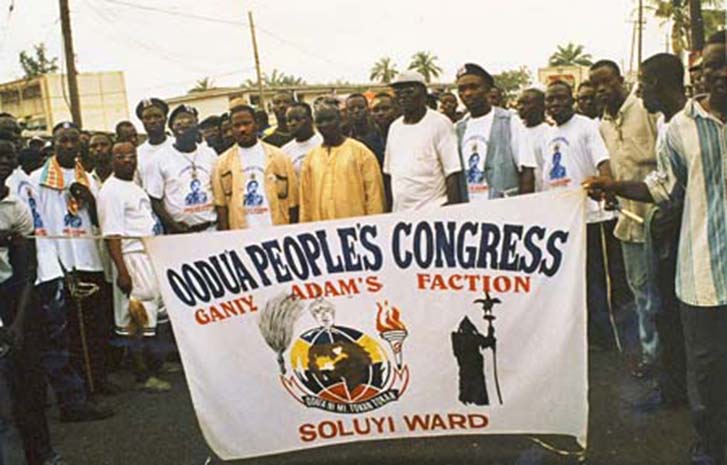
To many Nigerians who resided in Lagos, the era Tinubu was governor was hellish; it took his successor Babatunde Fashola’s diametrically opposite approach to clip the wings of OPC. Worse still, perhaps, for fear of jeopardizing his presidential ambition, Tinubu spoke tongue-in-cheek, not with firm condemnation, as Nigerians of his calibre did, when the whole country wept aloud over the deadly campaign by Fulani herdsmen who used the cover of forests from North to South, to kidnap, terrorize and spill the blood of innocent Nigerians.
It is difficult to forget Tinubu’s politically-correct reaction when suspected Fulani herdsmen murdered Mrs Funke Olakunrin, daughter of the late Afenifere leader, Reuben Fasoranti. He had said, “I am extremely concerned about security, I don’t want a stigma, I can go through (the) history of kidnapping in Nigeria and we know how and where it all started, there are a lot of copycats. How many years ago have we faced the insecurity in the country? There are cases of kidnapping, is Evans too, who was arrested and made disclosures, also a herdsman? I don’t want to be political, but I will ask, where are the cows?”
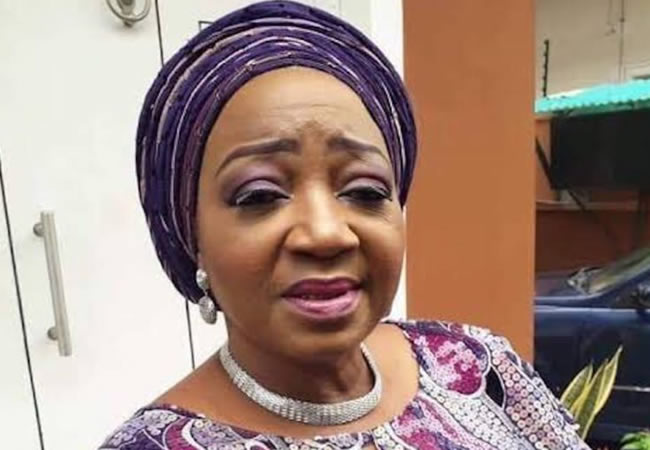
Mrs Funke Olakunrin, murdered daughter of the late Afenifere leader, Reuben Fasoranti Photocredit: The Punch
To underscore the disappointment at Tinubu’s silence, Timi Frank, an All Progressives Congress (APC) member, lambasted the presidential hopeful for not lifting a finger to condemn the havoc herdsmen wreaked in the South-West. Frank had challenged Tinubu “to speak up in defence of the Yoruba race now under fierce attacks by herdsmen, bandits and kidnappers.” There are very few instances in which Tinubu spoke emphatically against terrorists and bandits in Nigeria or even proffered solutions to the cancerous problem, until his campaign for the big prize of Nigeria’s presidency was underway. It is doubtful if Tinubu has a joker in his kitty to tackle terrorists and bandits.
During his campaign, Tinubu promised to deal with insecurity, but that leaves much to be seen. Also, his Vice-Presidential candidate and former Governor of Borno State, Kashim Shettima, had once said while Tinubu would handle the design to resuscitate the Nigerian economy, he would tackle insecurity in the country. Shettima, now senator, was strategic in dealing with Boko Haram in Borno State, with the creative establishment of the Civilian Joint Task Force (CJTF), which collaborated with the military to fish out Boko Haram elements who attempted to melt into the society, and characteristically plot havoc in the state. The strategy, a psuedo kind of state policy, knocked off terrorists from major cities and confined them to unoccupied Sambisa Forest and Lake Chad Basin regions. However, to deal with the serious insecurity in Nigeria, much more needs to be done; Civilian JTF approach is too cosmetic for the enormity of insecurity in Nigeria.
Though he might have an array of brilliant military tacticians to advice him, success in the fight against terrorists and bandits would largely depend on the president’s convictions
A member of the defunct APC Presidential Campaign Council, Architect Bulama Waziri, argues that Tinubu, as president, may not have the answers to the insecurity in the country, but his ingenuity in fishing out talents and putting square peg in square holes would come to play.
Waziri said, “As we speak, we have heroes of Boko Haram fighters, like Lt General Yusuf Tukur Buratai, a former Chief of Army Staff, and Lt General Abdulrahman Dambazau, another former Chief of Army Staff and former Minister of Interior, in the APC presidential campaign team. These two did a lot of work to curtain and curtail the spread of terrorists in Nigeria. At present, we have the Chief of Defense Staff, General Lucky Irabo, a veteran in the fight against Boko Haram whose tenure will linger into Tinubu’s tenure as president. These are the elements who would come up with formidable strategies to deal with insecurity in Nigeria. Tinubu has his own turf, which is the economy; but he will identify Nigerians who have the skill-set to tackle insecurity across Nigeria.”
Though he might have an array of brilliant military tacticians to advice him, success in the fight against terrorists and bandits would largely depend on the president’s convictions. There are pressing and existential issues that the next government must address, one of which is how would millions of Nigerians, whose ancestral homes have been appropriated and renamed by bandits, reclaims their lands and properties from the killers? Communities in Benue, Kaduna, Plateau, Nasarawa, Katsina, Zamfara, Kebbi, and even Sokoto have been dispossessed of their ancestral lands, their farms and produce wasted by bandits, while government failed to counter their assailants.
In Plateau State, for instance, Honourable Timothy Dantong, captured the people’s predicament thus: “When they attack, kill and chase the people away, they take over their homes and farmlands, and the people cannot go back to their villages, yet they are described as unknown gunmen.” There can be no lasting peace under a situation in which citizens of Nigeria are sacked from their homes by non-state actors, but government failed to use its military force to return and protect them in their homes. This issue cannot be wished away; it will dovetail into the next administration.
He will identify Nigerians who have the skill-set to tackle insecurity across Nigeria
The role of the military in the confusion must be properly examined. Since a former Chief of Defense Staff and Ministry of Defense, General Theophilus Danjuma, queried the impartiality of the military in what had been dubbed farmers-herders conflict in the North, the suspicion that a section of the military encouraged bandits and terrorists to unleash terror on non-Hausa/Fulani people, in mainly North-Central Nigeria, has remained strong. The military has dismissed the allegation, but the repeated failure of the military to proactively intervene when communities present valid intelligence of impending attacks reinforces Danjuma’s allegation. Tinubu must tackle all these. No doubt, the buck still stops on the desk of the president; and his body language would determine the extent to which those assigned to execute specialized tasks would would do their job.
Read also…Terrorists want Nigeria to erupt in religious war-NIREC Executive Secretary
Sign up for The Insight Newsletter
Get in-depth, research and data-based interpretative reports from around Nigeria.

